Smart Contracts: Real-Life Use Cases

In the first two articles of the Smart Contract series, Antonio discussed blockchain as the base on which smart contracts operate and their real adoption value for enterprises. Summing up the Smart Contract series, in this closing article Antonio looks at how contracts work in various industries like fintech, insurance and energy
Progressing from our first article explaining smart contracts, how they are executed and the benefits of adopting them in business, and the second article on the use cases, we move forward to exploring some of the industries like fintech and energy, which are deriving real value from Smart Contracts. In this article, we'll use real-life use cases to understand how smart contracts are being adopted in leading industries. Since this digital tech is beneficial to every industry, readers can extrapolate for their organizations as well. And, if there are any specific doubts that need to be addressed, we can think of taking those up in our future articles.
So let’s begin by taking a look at some use cases for Smart Contracts in a function that is common to many industries:
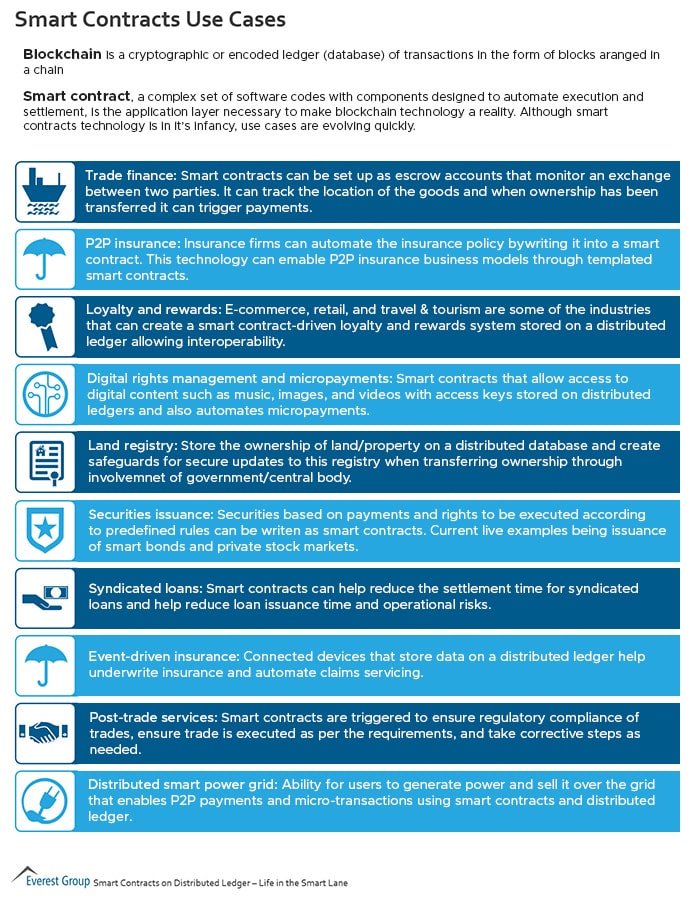
From the infographic above, it’s clear that smart contracts offer the flexibility that makes their adoption easy in almost every industry – from financing for various trades to energy distribution, from insurance to loyalty and rewards operations in retail and e-commerce and for digital rights management (DRM) and micropayments systems as well. Indeed, smart contracts can adapt and be shaped based on business requirements, because they are encrypted pieces of software code and are thus of value to every industry. Let’s take a look at how smart contracts are aiding the insurance industry.
Smart Contracts and Insurance
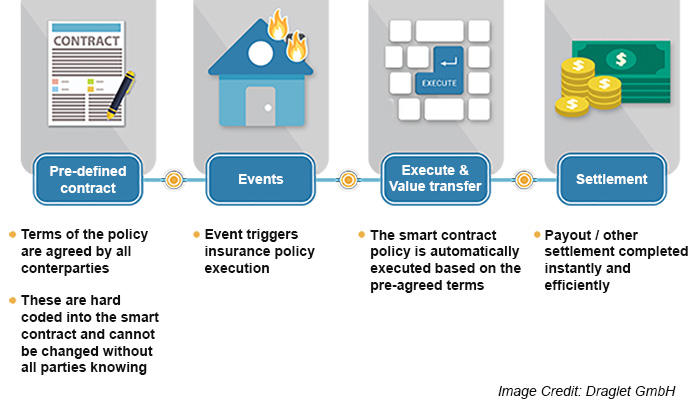
The core requirement of insurance companies is a formal agreement with the insured person that guarantees coverage as per the documented terms. Besides this, they also need to manage the claims arising from various incidents and life events that trigger the activation of the agreement. Smart contracts can execute this entire business process – from creating the formal agreement, its issuance to the insured till the settlement of claims in case the policy features need to be executed as seen in the below video.
Smart contracts enabling automatic compensation in travel insurance industry
Smart contracts in the financial services for syndicated loans
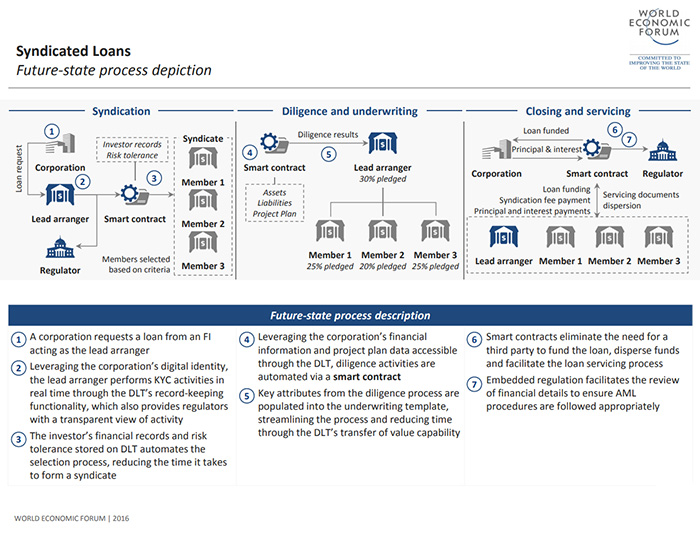
Banking and financial services deploying smart contracts for managing their standard loans is no longer uncommon. In addition to this, syndicated loans, which involve multiple lenders providing loans to multiple borrowers on the same loan terms, have much to benefit from using smart contracts. All the steps, including syndication, diligence, underwriting and servicing of syndicated loans, can be processed faster using smart contracts. With several entitites involved in syndicated loans, in fact, establishing relationships, identities and maintaining security becomes far more simplified with the on-chain / off-chain information that smart contracts can offer. Smart contracts thus act to drive effectiveness and efficiency in this scenario.
Smart contracts help synidcated loans to be executed faster and in a more secured manner
Smart contracts in the energy sector
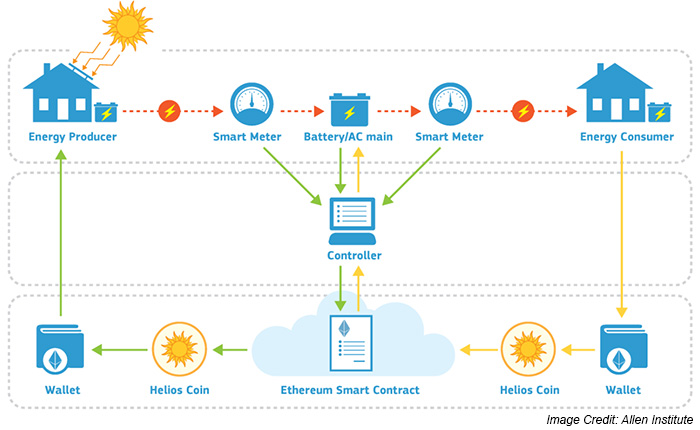
Today’s energy sector is being disrupted by three Ds – decarbonization, decentralization and digitalization. These phenomena are changing the way we’ll use and distribute energy in the future. Today’s energy consumers are also turning energy producers, thanks to renewable and alternate energy sources like solar and wind and the innovation of microgrids. No wonder then, that they are being called “prosumers"!
Considering all these advancements, a trusted mechanism is needed to let all these operatives exchange resources in a fast and secure way. And, smart contracts are the perfect tool to ensure the generation and distribution of energy is as per the agreed terms. Besides, smart contracts also facilitate the easy integration of digital technologies like IoT through devices like smart meters that record the accurate flow of energy between users and producers and issue precise statements.
Using smart contracts to recharge an electric vehicle
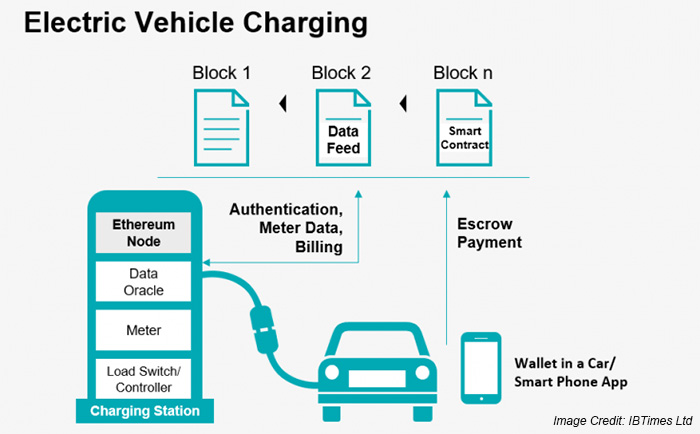
Another example of the use of smart contracts in the transport / automotive sector is for recharging electric vehicles, which are soon expected to be the preferred mode for mainstream travel. Considering these vehicles will already be integrated with IoT sensors, smart contracts will be the most effective way to execute the business process of recharge, so that users have a secure payment option at their disposal.
Deploying smart contracts, the user can subscribe to an energy provider after accepting all their terms and conditions. Then, using the smart contracts system, payments can be managed in an automated manner and voila! You are ready to just recharge and vrooom...
Smart contracts for Digital Rights Management
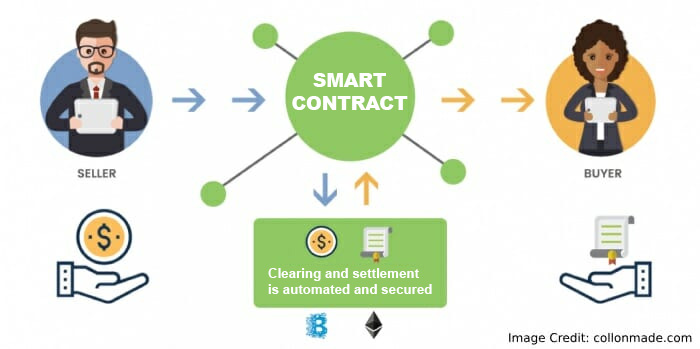
Besides being deployed for services like insurance and finance, and products like energy and electric vehicles, smart contracts can be very crucial for digital rights transactions. For the entertainment industry, smart contracts can facilitate how the music and movie rights are exchanged based on a Digital Rights Management (DRM) system. A DRM server stores the rights for various creative offerings, and using smart contracts various parties can avail copyrights once the negotiated license fee is released. This helps manage the workflow in an effective, secure and transparent manner.
This is not an exhaustive list of business use cases for smart contracts, as the technology can be adopted in numerous industries and multiple business processes within these industries. Our aim to showcase these examples in this three-part series is to highlight the flexibility of this tool, which can modify itself as per the business need. Smart contracts enable enterprises to bring in secure value exchanges that blockchain can provide in their business processes on an everyday basis. Breaking all the myths surrounding it, without the hype and in a real way!
Hope our Smart Contracts series helped simplify the technology behind the tool. And, if this helps you adopt it and shape it to your business needs, I’ll have succeeded in my effort. Coz, smart contracts will be the way of life in a very near future.


 By
By 








